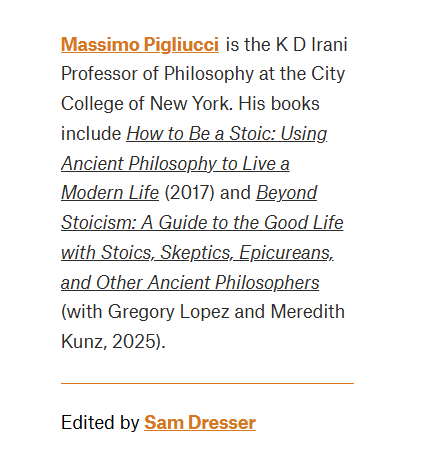These lessons in scepticism could make the world a better place [View all]
 In our age of certainty and dogma, we would all do well to learn from the philosophy of the ancient Greco-Roman sceptics
https://psyche.co/ideas/these-lessons-in-scepticism-could-make-the-world-a-better-place
In our age of certainty and dogma, we would all do well to learn from the philosophy of the ancient Greco-Roman sceptics
https://psyche.co/ideas/these-lessons-in-scepticism-could-make-the-world-a-better-place
 Detail from Portrait of a Prelate (1592-99) by Michelangelo Merisi da Caravaggio. Courtesy Wikipedia
Detail from Portrait of a Prelate (1592-99) by Michelangelo Merisi da Caravaggio. Courtesy Wikipedia

We live in a paradoxical time: despite the proliferation of critical thinking courses in schools and universities, our public discourse has never been more dominated by inflexible certainties, tribal allegiances to dubious ‘facts’, and a profound aversion to questioning our own beliefs. In an age where certainty is currency, doubt has become a radical act.
Our social media ecosystems reward conviction, not contemplation. Politicians trumpet certainties rather than explore complexities. Even our educational institutions often teach critical thinking as a weapon to dismantle others’ arguments rather than a tool for examining our own. The skill we most desperately need is the very one we’ve neglected to cultivate: the ability to hold our own certainties in suspension.
What if doubt isn’t weakness but wisdom? What if the most intellectually courageous stance isn’t to plant your flag in the ground of conviction, but to embrace the productive discomfort of uncertainty? The ancient Greco-Romans, facing their own societal upheavals, developed sophisticated approaches to scepticism that might serve us better than our modern pretences to critical discourse.
The word ‘scepticism’ comes from the Greek
skeptikos, meaning ‘enquirer’. In the ancient Greco-Roman world, there were at least four distinct approaches to scepticism, which I and my co-authors Gregory Lopez and Meredith Kunz explore in some detail in
Beyond Stoicism: A Guide to the Good Life with Stoics, Skeptics, Epicureans, and Other Ancient Philosophers (2025). Let’s take a look at four representative philosophers whose way of thinking would very much be useful to us all-too-certain denizens of the 21st century.
Socrates’ approach: knowing what you don’t know.....................
snip


